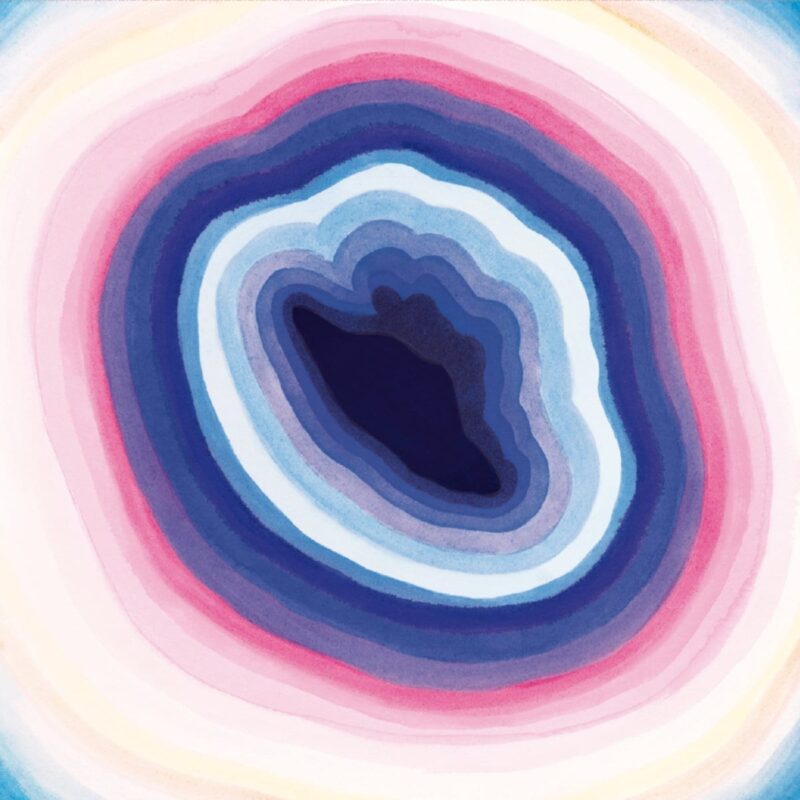An essential element of the Aquaserge collective, a searching mind soaked in lava-lamp goo, a collaborator of Bertrand Burgalat, Philippe Katerine, April March and Stereolab: this is Julien Gasc. Let’s tackle the question of Gasc’s sometimes slightly dissonant voice head-on: we don’t give a damn, the overall result more than makes up for it, as it borders on near-perfect pop. In fact, on “Undying Eyes”, the last track of the album and the only one in the language of Sir Elton John (don’t trust “We’re so in love” and “Giles and Jones”), Gasc hits those notes and makes them hauntingly celestial. It sounds like Sufjan Stevens!
Gasc, then, is another French artist drining from the well of Robert Wyatt and Jean-Claude Vannier – not that we’re complaining – to achieve an irreproachable, up-to-date glorification of the psychedelic prog-jazz aesthetic whose foundations were once laid by the aforementioned pair. Note the tropical incursion “Macarabela”, which suggests more the Macarana de Rio (the famous football stadium) than the Macarena of Los del Río. Also noteworthy is the splash of Americana at the end of “Pagode”, in the form of a solid pedal steel solo performed by Harry Bohay. Worthy of note are Catherine Hershey’s exemplary back-up vocals, and the rhythm section consisting of drummer Cédric Monzali, bassist Syd Kemp and percussionist Eno Inwang are.And what does all this have to do with Jack London, given the album title’s correspondence to that of the great writer’s most famous novel? A reference to the title of Gasc’s own first solo release in 2013, Cerf, Biche et Faon? We may never know.
























